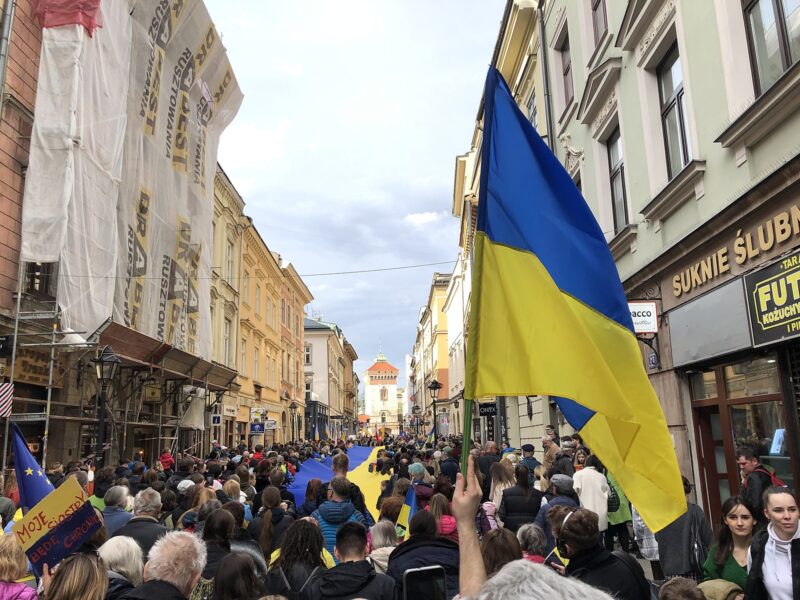
When Russia has cancelled the deal regarding transport of products such as wheat through the Black Sea, the question of export from Ukraine has become a burning issue. As much as 20 million tonnes of grain are waiting in the Ukrainian ports and around 60,000 tonnes of it were destroyed in Russian air strikes.
The temporary ban on importing Ukrainian grain, that the European Commision introduced in May, has ended on the 15th of September. The restriction was introduced in order to maintain a stable economy of farmers from countries neighbouring Ukraine, as trading cheap Ukrainian grain could destabilise the market. In order to keep protecting the interest of their own farmers, countries such as Poland, Hungary and Slovakia announced that they would introduce their own ban on the import of Ukrainian grain. It has provoked disapproval of other EU countries as local market analysysts determined that there is no economical reason for continuing the ban. The discussion has escalated when Ukraine decided to file a lawsuit against Poland, Slovakia and Hungary at the WTO. Ukrainian minister of Economy, Yuliya Svyridenko, has highlighted the importance of solidarity between the Central European countries, with hope that they can come to an agreement.
The temporary ban on importing Ukrainian grain, that the European Commission introduced in May, has ended on the 15th of September
Yet, the situation seems to be escalating as important politicians from Poland and Hungary have demonstrated sentiments towards defending their goal. The prime minister of Hungary, Viktor Orban, has announced that the country will have to “take matters into our own hands” on “X”. The shift of attitude of the Polish government towards helping Ukraine is also worrying, as the political narrative has become more hostile. The country that took in millions of Ukrainian refugeees at the beginning of the war has now come to a moment of focusing on its own interests.
Mateusz Morawiecki, the Polish Prime Minister, has spoken about the importance of protecting Polish farmers and Andrzej Duda, the Polish President, has announced that Poland will stop supplying weapons to Ukraine. He has highlighted that Poland has little more weapons to offer and the country will start supplying itself with newest technological equipment. The previously agreed ammunition will still be sent as Poland is binded by a contract signed by Ukraine. Some more negative remarks have been exchanged as well, the President has compared Ukraine to “a drowning man who risks dragging his rescuers down with him“.
One possible reason for reinforcing the anti-Ukrainian narrative in Poland is the upcoming parliamentary election on the 15th of October. PiS, the party in power, is trying to steal voters from Konfederacja party (that falls on the far right-wing spectrum) which has support that is close to 10%.
The government started to use the narrative of blaming Ukrainians for not being “grateful” enough for the Polish support, which has produced unnecessary tensions between the countries. But is it just to give up on a country at war in order to explore a new voting demographic? The danger of decaying friendship is worrying, as brothers should unite in fighting against Putin’s regime.


